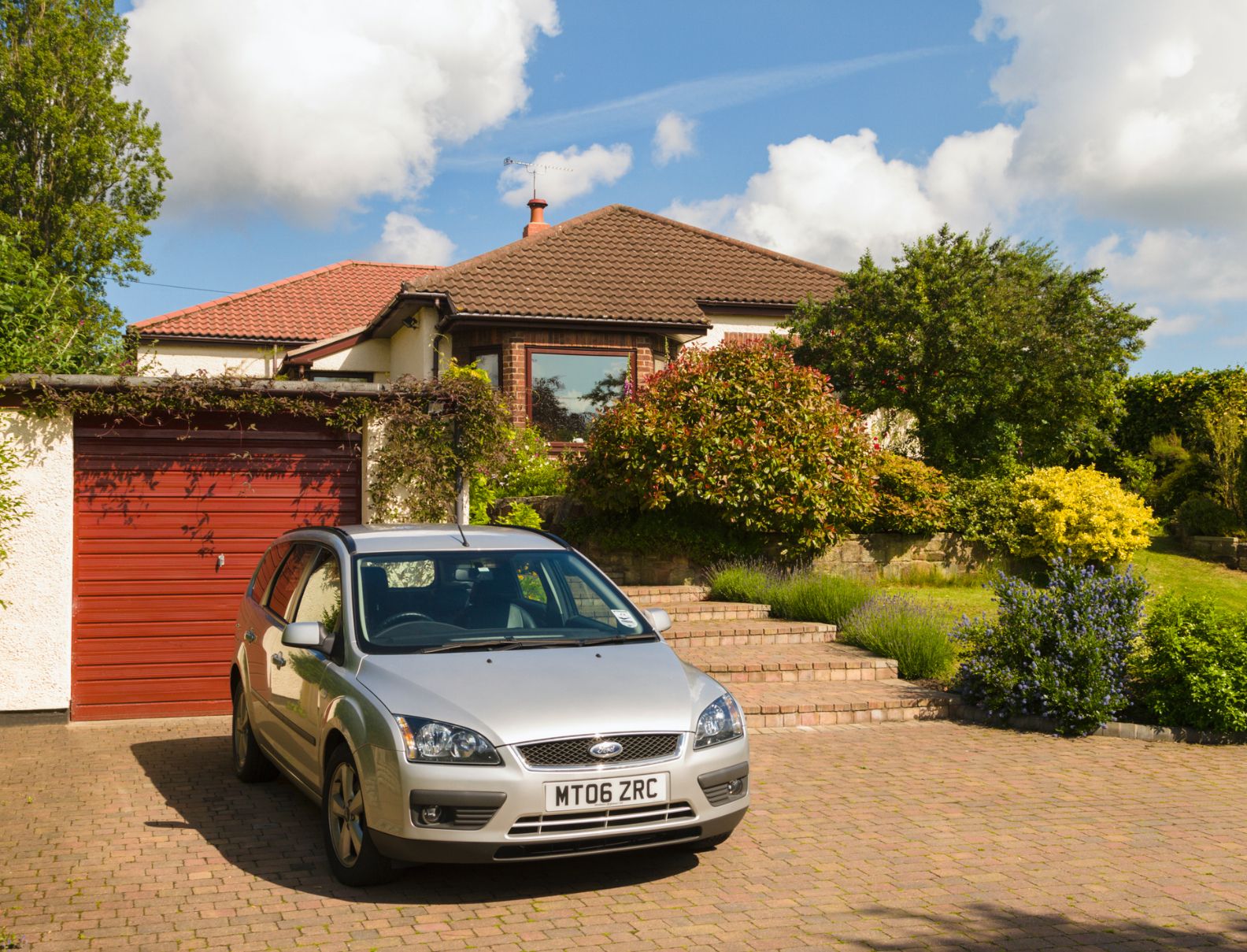Secure Your Car With The Super Car Insurance Plan!
Believe it or Not! Save upto* 75% on TATA AIG Car Insurance
Secure Your Car With The Super Car Insurance Plan!
Believe it or Not! Save upto* 75% on TATA AIG Car Insurance
How to Increase Car Mileage
- Author :
- TATA AIG Team
- ●
- Last Updated On :
- 02/12/2024
Most buyers in India look for a car's mileage when purchasing it. Since vehicles are used for daily commutes and long-distance rides, vehicle mileage is very important. Considering this, various manufacturers have started making cars with better mileage.
However, there are driving techniques to increase fuel economy too. Various factors contribute to car mileage such as driving technique, vehicle maintenance, etc.
In this blog, we will learn all about how to increase car mileage. But before jumping on that, let us understand what exactly car mileage is.
Understanding Car Mileage
Car mileage is a technique for determining a vehicle's fuel efficiency. In simple words, it is a way to tell the number of kilometres a car can run on 1 litre of fuel.
A four-wheeler has an internal combustion engine that requires fuel to run. The fuel can be either petrol, diesel or CNG.
However, for electric vehicles, car mileage is the number of kilometres a vehicle can run before the battery runs out. Depending on the vehicle type, car mileage is broadly classified into the units below.
Kilometres Per Litre
This is the most common type of car mileage unit used to express a vehicle's fuel efficiency in India. It basically tells the number of kilometres a car can travel on 1 litre of fuel, which can be petrol or diesel.
Litres Per 100 Kilometres
This is another type of car mileage unit generally used in foreign countries. However, many foreign car manufacturers specify the fuel efficiency of their vehicles in l/100 km in India.
It generally specifies the number of litres of fuel used by a car to travel 100 kilometres. The lower the number, the more fuel-efficient the vehicle.
How to Determine the Mileage of a Car?
Knowing about how to improve fuel efficiency in a car is one thing, but before that, knowing how to calculate car mileage is also important. Below is a step-by-step guide to calculating car mileage.
Step 1: Fill Up the Fuel Tank
The first step to knowing a car's mileage is to fill the fuel tank entirely. It is best to take notes of the litres added to a tank. Knowing the exact number of litres will help calculate the mileage more precisely.
Step 2: Check the Reading of Odometer
After fueling the tank, check the kilometre reading on the odometer. It will be best to note down the reading somewhere.
Step 3: Drive As Usual
After noting the initial reading of the odometer, start driving your vehicle as you usually do. Drive in a consistent style and avoid unnecessary routes to determine your vehicle's accurate mileage based on your usage.
Step 4: Check Reading Before Refuelling Vehicle
Now, after using the vehicle, if you feel like the vehicle is running out of fuel, then check its odometer reading before refuelling it again. Make sure to note down the exact number, as it will help determine the exact mileage.
Step 5: Use the Car Mileage Formula
Now input all the values in a car mileage formula, which is a subtraction of the first odometer reading from the second and divided by the litres of fuel used.
Car mileage = (Second Odometer Reading - First Odometer Reading)/ Number of Litres of fuels used.
This will help you determine the exact mileage of the car based on your usage. By knowing the car's fuel efficiency, you will be able to use fuel-efficient driving techniques.
Step 6: Check Periodically
Checking the mileage periodically will help you understand a car's mileage based on usage. This will also help you understand the car's performance and avoid factors that are affecting the car’s mileage.
Factors Affecting Car Mileage
Various factors can affect a car's mileage. Below, we list some of the factors that affect car mileage and performance.
Weight of Cars
The very first thing that vehicle owners need to factor in while purchasing a car is its weight. Cars that are heavier in weight, like SUVs, generally have lower mileage compared to compact cars.
Engine Size
Another factor that affects car mileage is the size of the engine. If a vehicle has a larger engine, it will use more fuel to perform. Generally, high-performance vehicles have a large engine, and that is why they have lower mileage compared to other vehicles.
Driving Conditions
Another factor that influences vehicle mileage over time is driving conditions, such as traffic, poor road conditions, weather conditions, etc. These factors influence the car's performance, which further leads to reduced mileage.
For example, driving in heavier traffic will lead to frequent start-stop conditions, which puts the engine under more stress and further influences its performance, resulting in lower fuel economy.
Fuel Quality
Fuel quality is another factor that influences vehicle mileage over time. If vehicle owners are using low-quality fuel, it will affect the vehicle's performance, leading to wear and tear and poor mileage.
On the other hand, high-quality fuel helps optimise engine performance and leads to increased fuel economy.
How to Improve Car Mileage?
Let us come to the point of how vehicle owners can improve car mileage. Here are some pointers that help.
Keep Your Car Light
If you keep your car light, you can achieve improved fuel efficiency and speed. As a result, if you wish to get the maximum mileage from your vehicle, eliminate any unneeded loads from the vehicle.
To see the mileage improve, you must rid your car of those hefty spares you do not use, the extra tyre and the gathered rubbish. And, prior to loading something big into your boot, keep in mind that the heavier the car is, the more it requires fuel!
Check Tyre Pressure
Tyre pressure is a critical aspect that has a significant part in obtaining exponential mileage, yet it is often overlooked. The science behind it is straightforward. The point of impact between the road and the tyre rises as you drive with low tyre pressure.
As a result, there is more conflict between the road and the tyre, which leads to more fuel consumption. In the same way, overinflated tyres might help you save some money, but this will be at the expense of the grip of your tyres and overall security.
Monitor Traffic Conditions
Be on the lookout for traffic jams along your way, and be prepared to switch routes if necessary. Another way to increase car mileage is to plan ahead of time.
This is because traffic jams can significantly reduce your mileage. Also, you can choose ways that are normally free of congestion, even if the ways seem longer.
If you do not need to be somewhere by a certain time, ensure you drive when there is little to no traffic. If you commute daily, start 10 to 20 minutes before rush hour so that you can get the maximum mileage from your trip.
Driving Techniques to Increase Fuel Economy
Apart from this, certain driving techniques can also help in increasing fuel efficiency, such as
Avoid Over-revving
The first driving technique to increase fuel economy is to avoid over-revving. Over-revving puts additional pressure on the engine, which leads to more fuel consumption.
Revving the engine frequently and beyond its speed limits wastes fuel and causes wear and tear on engine components. For better fuel economy, it is best to prefer gradual acceleration at an appropriate RPm range.
Use Gears Correctly
Another driving technique to increase fuel economy is using gears correctly. No matter what kind of car you have, whether automatic or manual transmission, shifting the gears at the right time helps improve fuel efficiency.
If you are driving a manual car, then shift the gear as soon as the vehicle reaches the decided speed range. Automatic transmission car owners should allow the vehicle to shift to higher gears without any unnecessary revving.
Easy on Pedals
Another factor that affects car mileage is aggressive driving habits such as sudden braking, excessive speeding, etc. Therefore, being easy on the pedal is crucial for improving mileage.
It is best to drive at a consistent speed and avoid sudden braking. This will not put any additional strain on the vehicle and hence improve its mileage.
Tips for Car Maintenance to Improve Mileage
Besides fuel-efficient driving techniques, there are popular car maintenance tips to improve mileage.
Regular Engine Checks
One of the tips for car maintenance to improve mileage is to do regular engine checks. Checking for worn-out spark plugs or faulty ignition systems can help optimise fuel combustion.
Use Correct Engine Oil
Another tip that can help improve vehicle mileage is using the correct engine oil. The correct grade suggested by the manufacturer is necessary for optimal vehicle performance.
Check Wheel Alignment
Another thing to check for if you want to improve your car's mileage is its wheel alignment. A car wheel that is misaligned can cause rolling resistance and wear and tear, which further leads to lower mileage.
Therefore, checking the alignment of vehicles on a regular basis helps ensure smooth tyre rolling.
Change Air Filter Regularly
A clogged air filter restricts airflow to the engine, reducing its efficiency and causing it to burn more fuel.
Hence, it is best to check air filters regularly and change them, especially if you are driving your vehicle in conditions where there is more dust.
Importance of Purchasing Car Insurance Plan
Knowing how to improve car mileage is crucial. However, vehicle owners also need to spend on a four-wheeler insurance policy to protect their vehicles from unforeseen damages.
Furthermore, third-party car insurance is mandatory by law. Driving without it can lead to fines and penalties from the authorities.
With TATA AIG, you can choose from a range of customisable and affordable car insurance plans, including standalone third-party car insurance, standalone own-damage car insurance and comprehensive car insurance, depending on your needs.
With TATA AIG, buying four-wheeler insurance is easy and hassle-free. You can also do car insurance renewal online with us in a few simple steps. Your car insurance claim also becomes very easy with TATA AIG.
We have a team of 650+ claim experts to offer a hassle-free claim service to the policyholder. Furthermore, with our extensive list of network garages, repairing a vehicle is easy without paying cash.
Conclusion
Car mileage is a crucial factor when purchasing a vehicle. Vehicle owners often look for cars with better mileage. Regular maintenance is essential to maintaining a car's mileage.
In addition, using fuel-efficient driving techniques, such as avoiding excessive revving and sudden braking, can also make a significant difference. However, if your vehicle's mileage has decreased over time, it is time to get your car checked.
Frequently Asked Questions
Is there any hill driving technique to increase fuel economy?
Yes, when driving uphill, maintain a steady speed and avoid rapid acceleration. Shift to a lower gear early to keep the engine within its optimal power range.
When going downhill, take your foot off the accelerator to let the car coast, which saves fuel and reduces wear on brakes.
Does AC reduce car mileage?
Yes, using the air conditioning (A/C) in your car can reduce fuel mileage. The A/C puts an extra load on the engine, causing it to work harder and consume more fuel.
Does overspeeding affect the mileage of a car?
Yes, overspeeding significantly reduces a car's fuel mileage. As speed increases, aerodynamic drag also increases, forcing the engine to work harder and consume more fuel.
Disclaimer / TnC
Your policy is subjected to terms and conditions & inclusions and exclusions mentioned in your policy wording. Please go through the documents carefully.


